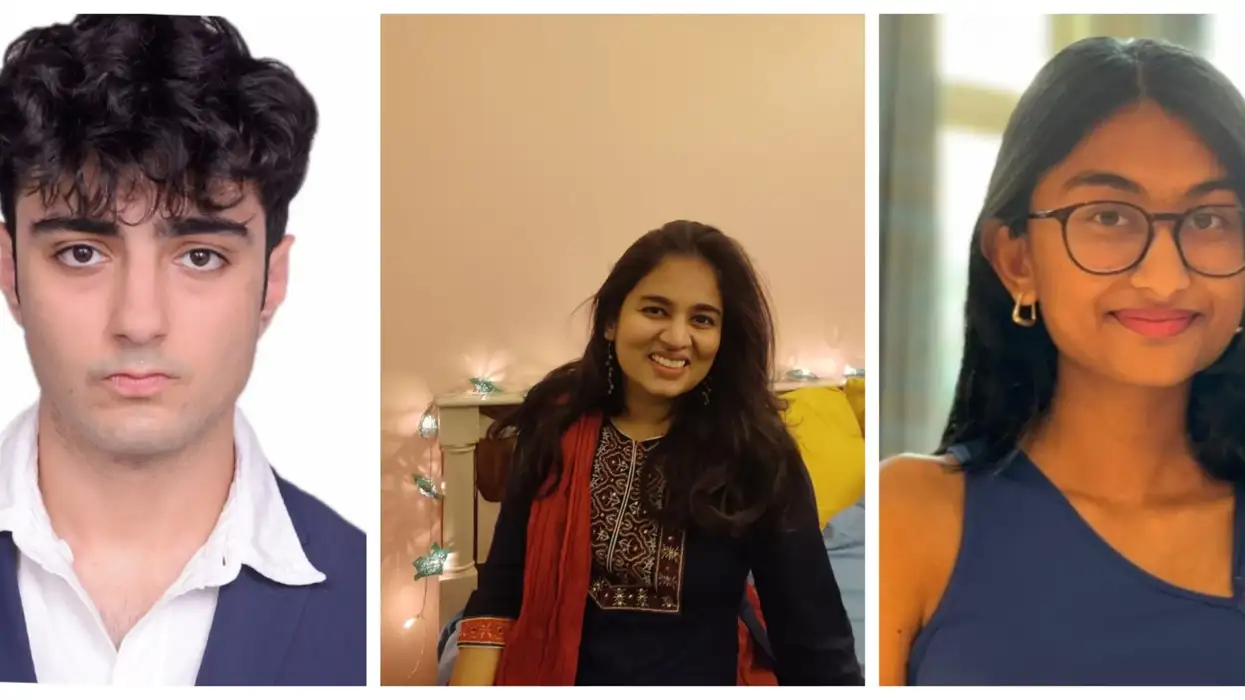A New Delhi-based innovator whose low-cost electric invention helps overcome power cuts, a mental health campaigner from Haryana and a student from Dubai who helps to empower girls across the developing world are the Indian winners of the Diana Legacy Awards this year.
Uday Bhatia, founder of Uday Electric, Manasi Gupta, founder of Huesofthemind Foundation and Netra Venkatesh, who started SpunkGo, received their awards from Prince William, the elder son of Princess Diana, at an event held in London’s Science Museum on Thursday (14).
The award recognised 20 young people from around the world for their social activism or humanitarian work.
When Bhatia began mentoring students as a 16-year-old schoolboy in the slums of Bichpuri, Uttar Pradesh, he saw how frequent power cuts rendered children unable to study. To tackle the crisis, he developed his ground-breaking invention called the Outage Guard bulb, as a low-cost solution designed to provide uninterrupted lighting for up to 10 hours during power cuts.
It has reportedly resulted in 950 families receiving stable and reliable power, boosting their educational and employment opportunities.
“Being a social innovator means tirelessly solving problems for the community. I view the Diana Legacy Award as a means to generate a ripple effect that inspires social innovators to change the way we view global issues,” said 18-year-old Bhatia after receiving the award.
“My late grandmother always motivated me to be a changemaker and to be the best version of myself. I hope that I’ve made her proud. More than just recognition, it has provided me with a launchpad and a vast network of connections to enhance my impact."
Bhatia now focuses on energy generation alongside energy storage, with the goal of “lighting every house across the globe, one bulb at a time”.
Gupta, 24, was recognised for having personally delivered over 100 sessions globally to encourage an emphasis on mental health support.
Impacting over 50,000 lives through her non-profit foundation, she is credited with creating an empathetic community focused on mental health support, and in collaboration with over 200 stakeholders, has delivered innovative campaigns, projects and events globally.
“It’s such a heart-warming experience to receive the Diana Legacy Award. I feel truly humbled by the trust the panel has in the work of my organisation, Huesofthemind Foundation,” said Gupta.
“I believe that we have a long way to go to make mental health services more affordable in India and to encourage conversations around mental well-being. In Gandhiji’s words, I continue to use that barrier as motivation to keep being the change I wish to see – by leveraging the power of communities, expressive arts and compassion,” she said.
Gupta has also created an illustrated book to raise funds and increase awareness through social media, reaching more than 1.2 million viewers in the past four years.
Venkatesh, a 17-year-old student Indian student from Dubai, has been honoured for her humanitarian efforts and commitment to empowering young people worldwide.
She started her organisation SpunkGo in July 2020, which brings together over 5,000 young girls from over 20 countries and from all walks of life to one community platform with the objective of using social media for good.
Through SpunkGo, she organises free life skills webinars featuring inspiring women speakers, to impart knowledge to girls around the world.
Venkatesh, student, Dubai International Academy said, “It was an honour to receive this award from HRH The Prince of Wales today. I thank the Diana Award team for the useful workshop they held for the awardees ahead of the awards ceremony. I am most happy for the further recognition this brings to the over 5,000 girls of SpunkGo. This award will go a long way to further our cause of empowering girls across the developing world via education.”
The other South Asian winners of the award are, Alizey Khan, 26, from Pakistan, who started Ruhil Foundation to ensure nobody would go hungry in her city; Nafira Nayeem Ahmad, 20, from Bangladesh, who founded Amplitude to abolish social taboos and discrimination in the country and Shamim Ahmed Mridha, 26, also from Bangladesh, who started the Eco-Network Global to ensure proper climate education through training programmes and awareness campaigns.
Pakistani American Sikander (Sonny) Khan , 25, who founded Paani Project, along with his friends, to tackle Pakistan’s lack of secure access to clean water, also received the award.
(with inputs from PTI)





